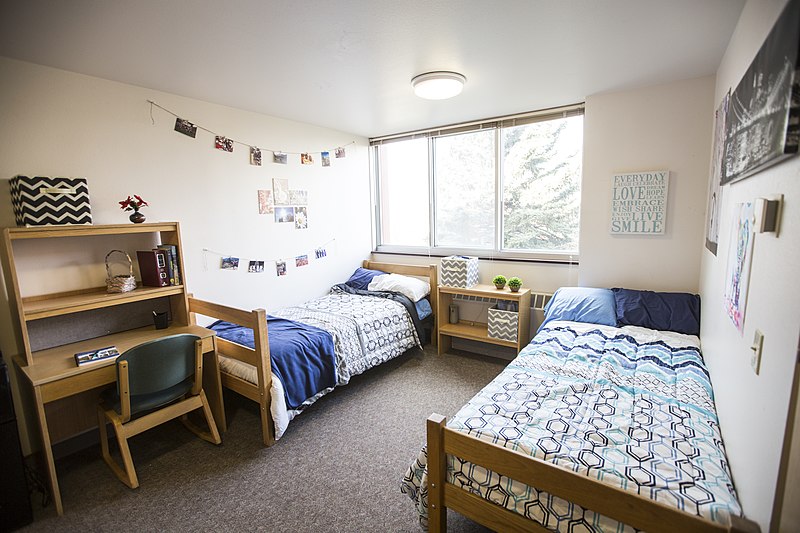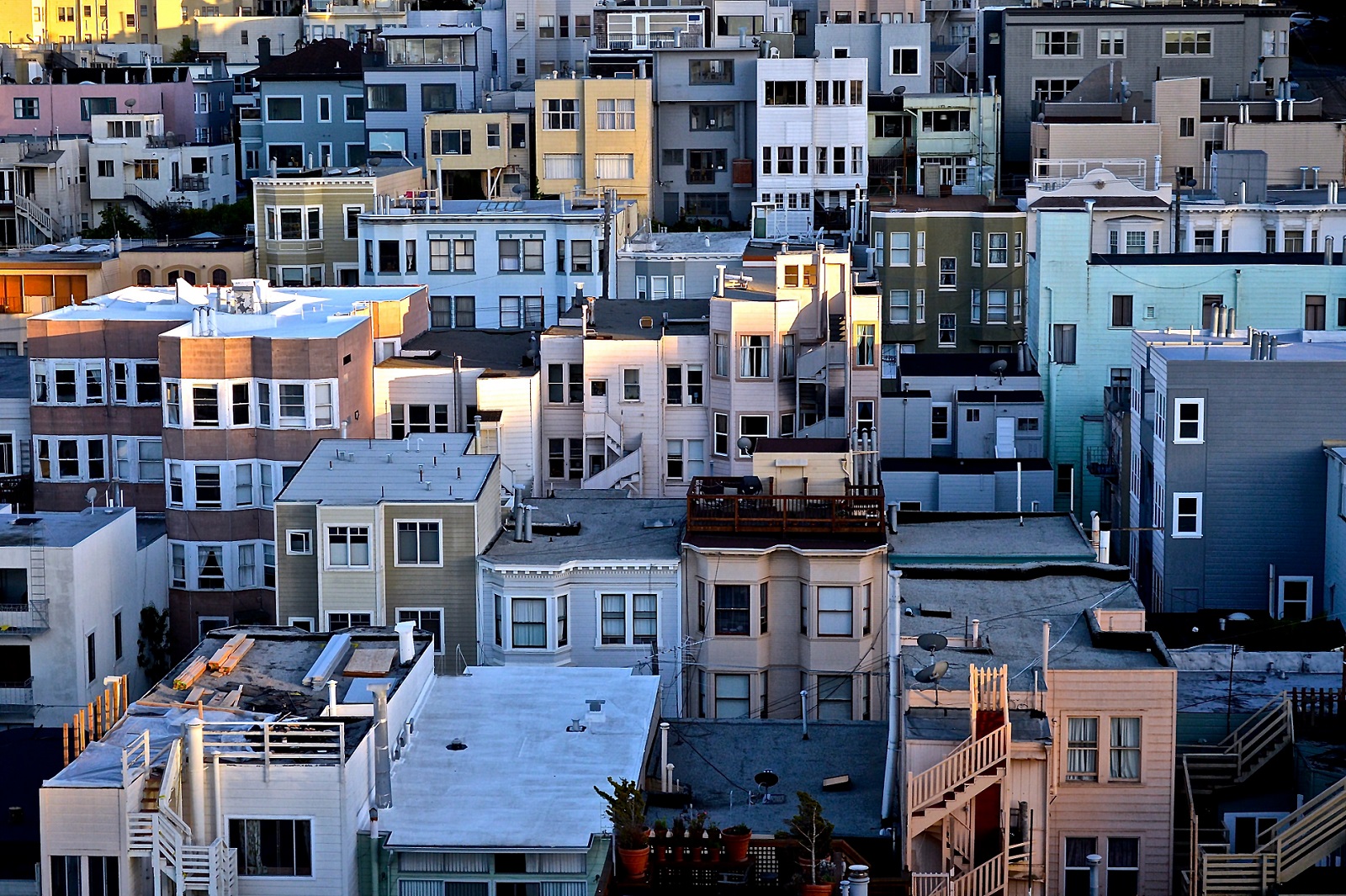The housing bubble may be great for some investors, but it brings precarity for families while rent increases push low-income earners out on the street.
We’re in the inflation stage of another housing bubble. You may remember when the last one burst, contributing to the Great Recession in 2007. Eventually this one will also correct itself, hopefully not as spectacularly. In the meantime, it’s worth taking a quick look at the causes and effects of this little slice of the modern economy and what it says about the people living in it.
Along with having the requisite 2.5 kids, home ownership used to be a solid part of the American dream. However, that was a long time ago, back when servicemen were coming back from the war, suburbs were built in rings around cities to house them, and the economy was booming, in large part because ours was left standing and Europe needed to be rebuilt. Nearly 70 years later, with the economy generally in decline from that peak, young people are far less able to afford the kids or the house.
Businesses, too, are running out of good ideas for how to extract ever more money from people who are, in many cases, barely getting by. After transforming things we once owned, like music recordings or software, into subscriptions we have to pay for forever, what else could they do to insert themselves in the money stream between human beings and the things they really need to live? Renting is the subscription model for housing, so Wall Street is becoming a landlord. Increasingly, investors are snapping up homes, faster and for more money than families can offer. This starts a vicious circle, inflating the housing bubble by raising property costs so that only those with deep pockets can afford homes, which they then rent back to people who can’t afford mortgages for more than the cost of their monthly mortgage payment.
Of course, if the firm holding your retirement cash just sunk it in a bunch of houses, you’re going to want the people who live in them to make good on your investment, so rents start ratcheting up. A Porch.com survey found that nationwide, 16.8% of renters are behind on payments, while 25.8% of renters in the Detroit, Dearborn and Warren metro area are in arrears.
Building more houses could help, but that’s also an expensive proposition (remember all those wildfires burning up prime timber?), and even though housing starts are up for the first time in a while, those houses aren’t going to get built overnight. Further, the profit margin on larger houses is more attractive than on more modest, affordable homes, so there’s no guarantee that builders will deliver what people need right now instead of what the top of the market will bear.
So, with the housing bubble pricing everyday people out of home ownership, and high rents on investor-owned homes stretching low-income renters to the limit, something’s gotta give. As pandemic relief fades away, that means more homeless people. Losing shelter also becomes a doom spiral that can mean job loss, health problems, financial destitution, and makes it harder to find future employment or housing to break the cycle.
There are a number of worthwhile solutions for cities and states interested in reducing homelessness. Some ideas, of course, are more effective than others.
Last month, New York mayor Eric Adams put forth his solution: ordering every homeless camp to be dismantled in two weeks. Hypothetically, the people kicked out of the subway tunnels and tents would be placed in “healthy living conditions with wraparound services,” he said, but checking into how that went revealed no such thing. The city spent “tens of thousands, maybe hundreds of thousands” paying for the police to arrest people who had nowhere else to go and throw their meager belongings into garbage trucks. Nothing like kicking people while they’re down to make the cycle repeat over and over again.
The Tennessee state legislature is going one step further. A bill passed by both houses and waiting for the governor’s signature will make it a felony to sleep on public property. Camping on state and private property is already illegal in Tennessee, so the new law would target people who sleep rough on city and county property. Seems that a bunch of Karens (who already have somewhere safe to sleep and a keen interest on kicking downward at people who don’t) formed an advocacy group to reclaim a nearby park where people went when they had literally nowhere else to sleep. On one hand, now they’ll be able to sleep in prison for up to six years, but it’s unclear how hitting homeless people with a $3000 fine, taking away their right to vote, and giving them a felony record will help them improve their conditions.
The efforts in New York and Tennessee are, at best, sweeping symptoms under the rug to make some places cosmetically more appealing to commuters and entitled whiners, but they do nothing to truly solve the problem. What could?
The first thing to realize is that homelessness is a policy choice. While American culture stigmatizes homelessness and people make themselves feel better about it by asserting that those without stable housing must have a “drug problem” or are “criminals” (which will become increasingly true, the more polities criminalize homelessness), the easiest, and often cheapest, answer is to provide housing. Multiple studies in recent years have found that cities often save significant money by simply housing people instead of paying for emergency room visits and extra law enforcement officers to keep making them move under some other bridge.

An interesting proposal out of Guelph, Ontario (Canada), calls for building large, dorm or barracks-style housing, not only for people who currently have no legal place to sleep, but for those in any number of transitory situations who need a place to stay. These small but stable “Guaranteed Personal Housing” units would have single or shared occupancy, a mess hall for cafeteria style meals, and inspections to insure a certain level of cleanliness. They would be a place for people when “the wheels fall off their life” for any reason, from recent divorce to job loss or bankruptcy, or even people who need a while to launch into adulthood or to live cheaply in the beginning stages of an entrepreneurial endeavor. One wonders how many of these could be built for the cost of tax breaks for companies who promise jobs but often fail to deliver.
For those who aren’t yet on the streets, but whose homes and neighborhoods are threatened by corporate takeover during the housing bubble, there are ideas swirling around for you, too. Residents of a mobile home park in Fresno, CA, who likely couldn’t afford a rent increase that would come with a new park owner, are organizing to buy the land themselves and form a co-op. Some homeowner’s associations (HOAs) are changing their covenants to cap the number of renters in an area, or to vet potential renters, as a way of discouraging big-money investors from buying properties in neighborhoods where residents would rather have families, instead of investors, for neighbors.
Until the housing bubble pops (or, better yet, we figure out a way to make housing more of a guarantee and less of a consumer good), more and more families, including elders and those with children, are going to have trouble finding affordable homes and being able to stay in them. A society that measures its success by how many of its members it feeds, clothes, and houses, enabling everyone to live up to their potential, would be upset by this. However, we seem to be a society that measures its success by how many of its richest men can self-launch into space, and I guess that’s also an indication of something.
Related: Lawlessness


Join the conversation!